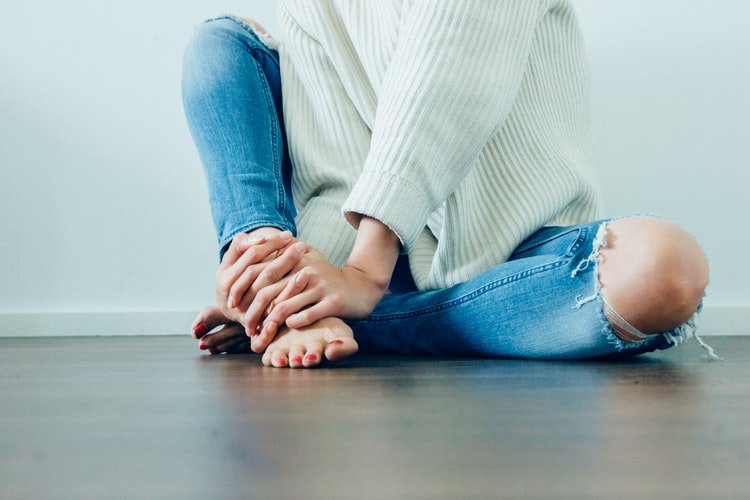You may have heard the saying, ‘just because it’s common, doesn’t mean it’s normal.’ While periods are a normal part of life for women and people with FARS (Female Assigned Reproductive Systems), one person’s ‘normal’ can look very different to another’s. And often what is perceived as normal, is often just common.
For a young person who has started menstruating, it might take a couple of years to settle into a routine. For those who are at the other end of their reproductive years, changes to periods are often a first sign that menopause is on the horizon.
Add into the mix factors such as stress, some medical conditions, or even exercising too much….and it seem sometimes as if your period has a mind of its own!
Knowing what’s normal and what’s not can be a little tricky. That’s why we’re taking a look at what’s normal when it comes to menstruation, and what you can do if you think your ‘normal’ is not quite right.
 What is the menstrual cycle?
What is the menstrual cycle?
Day 1 of menstruation – the first day of your period, when you start to bleed – is the first day of what is known as your menstrual cycle.
This occurs when the uterus (womb) sheds its lining. The uterus grows a new lining each month to get ready for a possible pregnancy. If there’s no pregnancy, the lining is shed through the vagina, creating your period. While the average length of a menstrual cycle is about 29 days, it can be as short as 21 days or as long as 35.
Jean Hailes for Women’s Health obstetrician and gynaecologist, Dr Amanda Ward, says a ‘normal’ cycle can vary from woman to woman.
“Everyone is different. Some women will get their period on day 28 and can almost plan it to the hour, while others may be slightly more irregular. However, for most women, their cycle is usually within 28 to 35 days.”
Periods. What is ‘normal’?
Everyone’s period is different, so it can be hard to know if yours is within the range of what’s ‘normal’. They can vary in how long they last, how much blood you lose, and whether you feel any aches or pains, or none at all. What’s normal for you may not be for someone else.
As a guide, most of the time bleeding lasts between three to seven days, with the heaviest flow occurring in the first day or two. However, for some women periods can last for up to a week, and other may only have ‘spotting’ rather than flow on their first day. Again, everyone’s ‘normal’ is different.

The amount of blood lost at each period can also vary, but is usually anywhere between 20ml (1 tablespoon) and 80ml (1/3 cup). Losing more than 80ml of blood is classified as a heavy period.
According to Dr Ward “You should be able to go three or more hours before you need to change your pad, tampon or menstrual cup, and at night you shouldn’t need to change it at all. However, flooding of your pad, or having clots is evidence that your period might heavier than it should be.”
Painful periods
Having no pain or some pain are both normal. Some women and girls may feel no pain or discomfort at all, while others may get menstrual cramps. These cramps can feel like a mild ache in your lower belly, or even your lower back, and are usually worse on the first day or two.
Everyone is wired to feel pain differently and some people feel the need to take a couple of painkillers on day one to two of your period…and that is still considered within the [range] of normal. However, needing to take a day off work every month because of pain is not okay and may indicate that something needs to be investigated. And if your doctor tells you it is just something you need to put up with and refuses to investigate it, remember, you know your body best. There is nothing wrong with getting a second opinion.

Painful periods can be caused by a number of things including:
- endometriosis – a chronic condition affecting one in nine women in Australia of reproductive age. It can occur when cells similar to those that line the uterus grow in other parts of the pelvis. This condition can also cause heavy periods
- adenomyosis – a chronic condition in which cells similar to those that line the uterus also grow in the muscle wall of the uterus. This condition can also cause heavy periods
- fibroids – benign tumours made of muscle and tissue that grow in the uterus
- pelvic infections.
If you have painful periods, don’t put up with it. Speak to your doctor.
Irregular periods – are they OK?
Periods can become irregular for a number of reasons. These may include:
- stress
- starting or changing contraception
- pregnancy (including ectopic pregnancy – where the baby grows in the fallopian tube), and miscarriage
- polycystic ovary syndrome (PCOS) – a complex hormone disorder
- thyroid disorders
- being underweight
- eating disorders
- excessive exercise
- chronic disease, such as kidney disease.

What about menopause?
Of course, one cause of irregular or changing periods is the approach of menopause. The term menopause relates to your very last period that is followed by 12 months of no bleeding. After this time you’re considered postmenopausal. However, in the 4-6 years leading up to menopause – known as perimenopause – periods can become irregular, heavier, lighter, shorter or longer, or may not even come for several months.
Most menstruating people reach menopause between the ages of 45 and 55. However, it’s also possible for women to experience premature menopause (before the age of 40) or early menopause (before the age of 45).
While irregular or missed periods may be a sign of early menopause, Dr Ward says they’re not usually the main symptom.
“We’re more concerned with symptoms such as hot [flushes], vaginal dryness, difficulty sleeping and mood swings,” she says.
When do I need to see a doctor?
See your doctor if you have any concerns about your period. Reasons for a visit to the doctor could include:
- you think you might be pregnant
- bleeding is longer or heavier than usual
- you have severe pain during your period
- bleeding between periods
- you feel sick or feverish after using tampons
- your period stops suddenly for more than 3 months and you’re not pregnant
- you haven’t had a period in 3 months after stopping birth control.
It is also recommended that you visit your GP if you have gone through menopause and experience any kind of bleeding.
A final word of advice from Dr Ward: never assume that painful or heavy periods are normal.
“If your period affects your day-to-day life in whatever way, go and speak to your doctor because there is help available to improve the quality of your life.”
Be in flow with your flow
Keeping a record of your periods can really help you understand your menstrual cycle. This can be done either in a diary, on a calendar or by using one of the period apps available these days.
Tracking when they start and stop, if and when you feel pain, and your mental and emotional health can help you learn what’s ‘normal’ for you. This can be a great way of becoming aware of any patterns and identifying if something’s not quite right. It’s also handy to have to share with your doctor.
Source : Jean Hailes
If you have any questions or concerns around your cycle, book in for a personalised consult with our Naturopath to help you on your way to better health and happiness .
